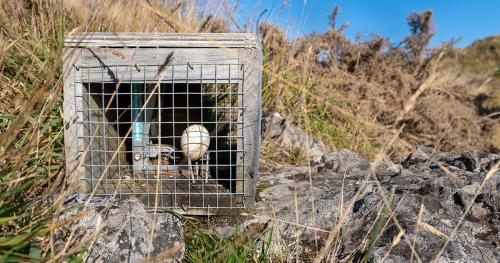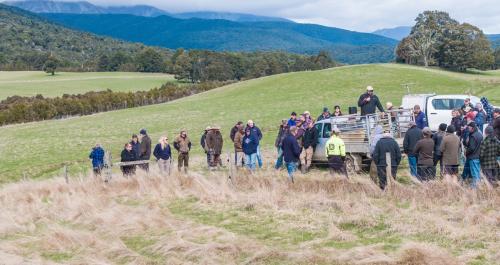Search results
Displaying 341 - 350 results of 916
- NewsBody condition, parasitism, trace elements and managing metabolic disease in cows are all issues beef farmers could be thinking about heading into winter, particularly those in drought-affected …

- NewsBeef + Lamb New Zealand has launched nine online learning modules to help farmers take ownership of their Farm Plan and create a plan that aligns with their individual farming …

- NewsBeef + Lamb New Zealand’s recently revised Unlocking the Potential of Hogget Lambing book contains a wealth of practical information for sheep farmers wanting to maximise production in their ewe …

- NewsAnecdotally, we’re hearing that afforestation, particularly carbon farming, is increasing issues with pests for neighbouring farms. We want to get more detailed info about this to inform our advocacy …

- NewsFarmers from across the top of the south recently gathered in Upper Tākaka for a full day of learning and discussion, focused on practical technologies that can add real value to farm …

- Editable PDFministry environment transitioning lowemissions climate resilient future have your say emissions reductions plan beef lamb new zealand ltd deer industry new zealand lnzdinz page 2 17 key asks …
- Other PDFlnz submission climate change response ets forestry conversion amendment bill 7 july 2025 7 july 2025 environment select committee climate change response emissions trading scheme forestry conversion …
- VideoSusan Kilsby – Agriculture Economist Susan became ANZ Bank’s Agriculture Economist in late 2018. She previously headed up NZX’s team of analysts providing leading intelligence on a range of …
- NewsWill Halliday, Beef + Lamb New Zealand’s Senior Advisor Animal Welfare and Biosecurity, says flood affected farmers in the north will be dealing with infrastructure damage as well as silt damaged …

- Factsheet10800 beeflamb 0800 233 352 wwwbeeflambnzcom farmers farmers shelter maintaining welfare productivity sheep cattle drystock farms fact sheet 17 4 may 2019 new zealands temperate climate means farmers …
